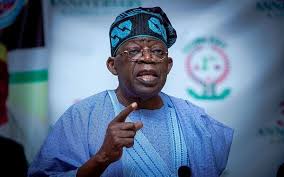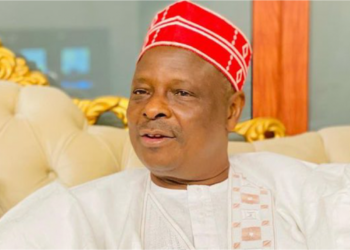* Repatriated Nigerians For Lagos, No Consideration For Alternative Destinations-Mills
Deploring the trauma that the deportation plans of Donald Trump’s administration would have on the affected Nigerians and their families, the Federal Government of Nigeria has urged the United States to ensure a dignified and humane process for the deportation of Nigerian immigrants.
Bianca Odumegwu-Ojukwu, minister of state for foreign affairs made the appeal during a meeting with the U.S. Ambassador to Nigeria, Richard Mills Jr., in Abuja.
However, Mills, in his response stated that repatriated Nigerians would be returned to Lagos, with no consideration for alternative destinations like Port Harcourt or Abuja.
He further explained that the first group of deportees would include convicted criminals and individuals who have violated U.S. immigration laws, some of whom had their appeals denied.
Odumegwu-Ojukwu, in a statement released by her Special Assistant on Communication and New Media, Magnus Eze, expressed concerns over the emotional and financial toll on Nigerians affected by the new U.S. administration’s deportation plans, urging dignity and humane process as lives of some family members dependent on the remittances from the deportees.
She revealed that approximately 201 Nigerians are currently held in U.S. immigration camps, with about 85 already cleared for deportation.
“If deportation must occur, it should be carried out with dignity,” the minister said.
According to the minister, there is the need for the affected individuals to be given adequate time to manage their assets and personal affairs before repatriation.
“Will they be bundled onto planes and sent back without regard for their circumstances?” she questioned, highlighting the trauma deportation inflicts not only on the individuals but also on their families in Nigeria, who rely on their remittances for survival and education.
She used the ocassion to also expressed concerns over the potential suspension of the U.S. Drop Box Visa System, which simplifies visa applications for genuine travelers, urging the U.S. government to reconsider any plans to suspend the policy and issue an official statement clarifying its position.
This call comes amid growing anxiety among Nigerians, particularly parents of over 14,000 Nigerian students studying in the U.S., who fear possible changes to student visa policies.
Similarly, Odumegwu-Ojukwu spoke on the uncertainty over USAID programs, stressing that while an outright suspension has not been confirmed, many non-governmental organizations (NGOs) are anxious for clarity.
She appealed for the continuation of USAID initiatives, citing their critical role in addressing humanitarian challenges across Nigeria and Africa.
The minister commended the post-COVID-19 trade relations between Nigeria and the U.S. and encouraged further investments in Nigeria’s mining sector.
ALSO READ:Nigeria’s Economic Activities Expand For Second Consecutive Month On Agric, Industry Sectors’ Performances
She also called for the reactivation of the ‘Silent Secretariat’ to facilitate bilateral assessments and strengthen economic ties between the two nations.
Ambassador Mills clarified that the Drop Box Visa Policy has not been suspended but is under review as part of the new administration’s policy adjustments.
He assured that USAID remains committed to life-saving initiatives, particularly in healthcare and humanitarian aid, despite challenges faced by some NGOs.
Mills reaffirmed the U.S. commitment to enhancing trade relations with Nigeria, stating, “This administration will focus more on trade and commerce to sustain our strong relationship.”
The ambassador also expressed concerns about democracy in Africa, the withdrawal of three Sahel countries from ECOWAS, and the ongoing fight against terrorism in the region. He reiterated the U.S. government’s support for democratic governance and regional stability.










